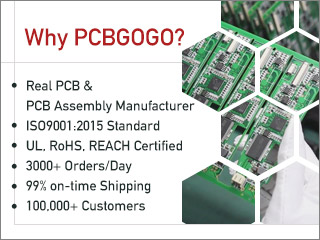Key Strategies for Enhancing the Reliability of Automotive Electronic PCBA
With the rapid development of automotive intelligence and connectivity, the proportion of automotive electronics within vehicles continues to rise, highlighting their growing importance. As a core component of automotive electronics, the reliability of PCBA (Printed Circuit Board Assembly) is directly linked to vehicle safety and stability. Therefore, enhancing the reliability of automotive electronic PCBA has become a focal point in the industry. This article shares key insights and strategies for improving PCBA reliability in automotive applications.
First, reliability must be considered from the design phase. A well-thought-out layout, routing, and component selection are foundational to a reliable PCBA. For example, critical signal lines should be kept as short as possible to reduce crosstalk between high-frequency signals. Power components should use packages with sufficient thermal dissipation capabilities and be integrated into a properly designed heat dissipation path. Additionally, environmental factors such as temperature, humidity, and vibration must be accounted for in the design stage, supported by reliability simulations and testing.
Secondly, quality control of incoming materials is crucial. High-quality electronic components and PCB substrates are prerequisites for producing reliable PCBA. Selecting qualified suppliers and conducting rigorous incoming inspections are essential measures. For instance, conducting electrical performance tests, visual inspections, and X-ray examinations of components can effectively filter out defective parts before they enter the production process.
Moreover, meticulous management of the manufacturing process plays a significant role in enhancing reliability. The production of automotive electronic PCBA involves multiple stages, including material cutting, drilling, copper plating, solder mask application, silkscreen printing, profiling, through-hole and surface-mount assembly, soldering, cleaning, and testing. Each step requires strict control of process parameters and quality inspections. Among these, the soldering process is particularly critical, as its quality directly impacts PCBA reliability. This necessitates the use of suitable soldering equipment and technologies, along with precise control of soldering temperature, duration, and other key parameters. PCBGOGO, as a long-established company in the industry, has accumulated extensive manufacturing experience and developed a comprehensive quality management system that effectively ensures PCBA reliability.
In addition, Environmental Stress Screening (ESS) is an effective method for improving PCBA reliability. By subjecting the PCBA to environmental stresses such as thermal cycling, vibration, and humidity, latent defects can be exposed and eliminated before delivery. PCBGOGO conducts targeted ESS testing based on customer requirements to ensure that PCBAs remain stable and reliable under various harsh conditions.
Finally, continuous quality improvement and reliability growth are long-term strategies for enhancing PCBA reliability. By analyzing and summarizing quality issues encountered during production, companies can optimize process flows and designs over time. For example, collecting and analyzing customer feedback allows manufacturers to identify real-world issues and implement targeted improvements.
PCBGOGO’s experience in automotive electronics manufacturing demonstrates that reliability is not achieved through a single measure but rather through a combination of rigorous design, high-quality materials, precise manufacturing, and continuous improvement.

